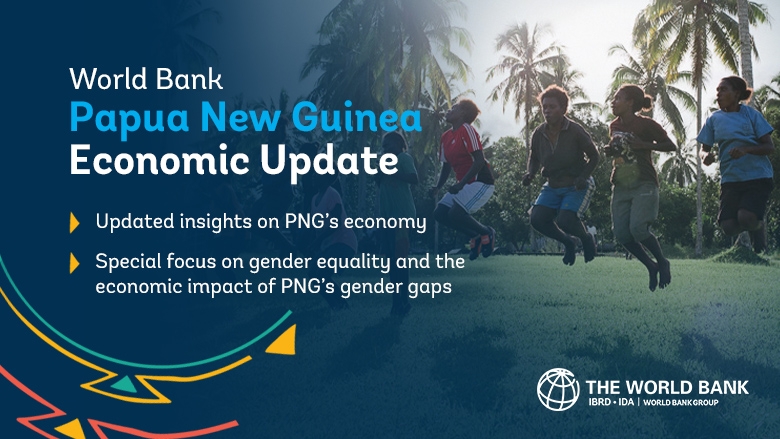World Bank Economic Update for Papua New Guinea predicts 3.7% economic growth in 2023
PORT MORESBY, March 30, 2023 – Papua New Guinea’s economy has recovered above its pre-pandemic GDP, with high commodity prices and the removal of COVID-19 restrictions accelerating economic growth to 4.5 percent for 2022, the World Bank’s latest Economic Update for Papua New Guinea has found.
The World Bank Papua New Guinea Economic Update reports that PNG’s fiscal deficit is estimated to have narrowed to 5.4 percent of GDP in 2022, compared to 6.8 percent in 2021. This reflects the Papua New Guinea Government’s continued fiscal consolidation and work to safeguard macroeconomic stability. The Economic Update recommends that the country continues implementing its plan to reduce the budget deficit.
The new report says that economic growth is expected to slow to 3.7 percent in 2023, due to lower global demand and supply constraints. It suggests that medium-term plans for fiscal consolidation could become more challenging. On the one hand, PNG’s needs for human capital (education, health and social protection) and infrastructure spending are substantial. On the other hand, substantial resource revenue boosts from commodity prices in the coming years are unlikely.
The World Bank report, subtitled Unlocking the Economic Benefits of Gender Equality, also makes a clear economic case for faster action on gender equality in PNG. The report says that bridging the substantial difference between men’s and women’s participation in better, more productive paid employment could raise GDP per capita by an additional 20 percent in the space of a generation.
The report also finds that addressing gender-based violence could bring other substantial economic benefits – beyond the obvious improvement to social wellbeing for women in PNG. The report estimates that annual productivity losses from absenteeism related to gender-based violence account for at least 0.5% of GDP, though the real cost is much higher.
The new report highlights the potentially significant economic gains to be made in PNG through efforts to address gender inequality, including improvements in overall family incomes, more substantial education and training and increased economic productivity. The report recommends:
- a review of PNG’s Employment Act, including the removal of discriminatory employment clauses;
- strengthened enforcement of the Family Protection Act;
- genuine implementation of the National Strategy to Prevent and Respond to Gender-Based Violence; and
- the expansion of programs that support women’s employment through targeted outreach, upskilling and access to women’s employment networks.
“We are now at a time of critical importance for Papua New Guinea as it returns to positive economic growth after the immense challenges of the past three years,” said Khwima Nthara, Country Manager for the World Bank in Papua New Guinea. “Work to drive fiscal consolidation – and reduce PNG’s debt burden – are now showing results that will help to sustain many of the hard-fought gains made.”
Mr Nthara said the World Bank’s new Economic Update sent a clear message that addressing gender inequities was not only a social imperative, but also an economic one for the benefit of all Papua New Guineans.
“The message from this report is clear; that addressing many of the most urgent gender inequities in Papua New Guinea will deliver major economic benefits for the country, and the reverse; that inaction will leave all Papua New Guineans – men and women – worse off.”
About the World Bank in Papua New Guinea
The World Bank’s work in PNG aims to help end extreme poverty and promote shared prosperity in a sustainable way so that everyone – regardless of their gender, where they live, or their social and economic circumstances – can benefit equally to support PNG’s development goals.
The World Bank currently supports 12 active PNG Government projects worth approximately US$692 miillion, in sectors including agriculture, health, transport, energy, water and sanitation, rural service delivery, labor mobility and youth employment.

